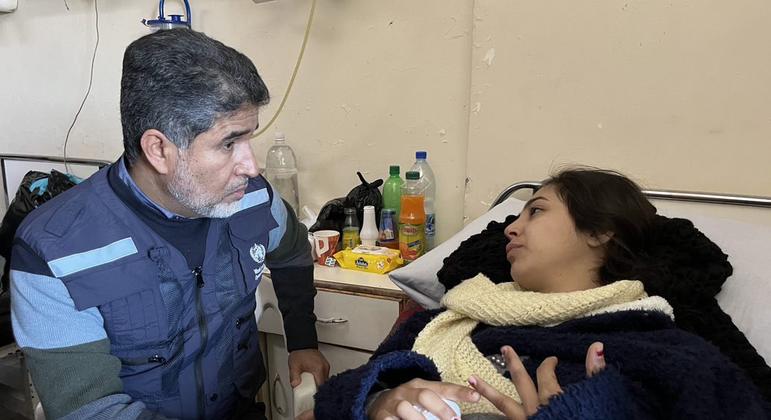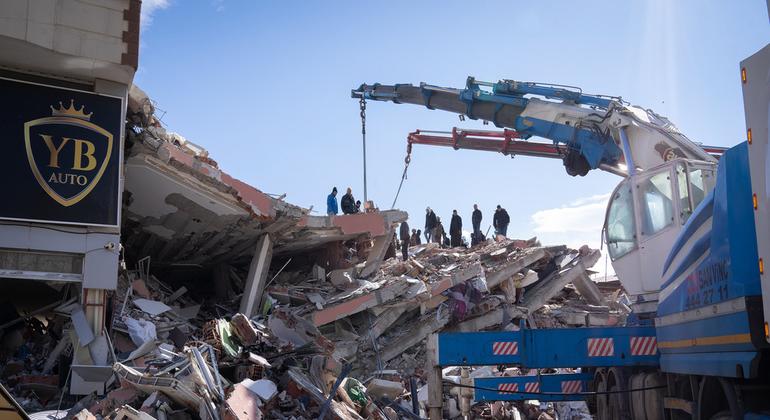Two days ago, we all provided a shipment associated with 35 metric tonnes of trauma kits and other medical supplies for infections. We are sending more from our supply hub in Dubai. WHO and other EL agencies have been on the ground through day one. We managed to supply supplies to 16 private hospitals in northwestern Syria by means of our NGO partners. The destructive impact of 12 years of civil war has been exponentially boosted by the 6 February earthquake which has left tens of thousands of individuals dead and millions more in need of support on both edges of the border between Syria and Türkiye. We are also facing high risk of the spread of water and foodborne diseases due to the disrupted water supply; a year ago we had a cholera break out because of contaminated water. The other risk may be the spread of hepatitis, due to contaminated water and food supplies.

WHO ’s Regional Director for your Eastern Mediterranean Region, Doctor Ahmed Al Mandhari, has been just in the historic city of Aleppo, in Syria. The earthquake strike at a time when needs across Syria are at their greatest since the conflict began twelve years back. For example , nearly 50 per cent of the country’s healthcare facilities are not functioning because of the war and now more crucial medical equipment has been destroyed by the earthquake.
Negotiation with Syrian authorities
I’m very worried about the particular harsh winter weather with incredibly cold temperatures. There are individuals living outside in tents which are not heated. I met an old lady and I saw her hands are usually cracked with bruises so when I touched her hands it was very dry because of the cold weather and the lack of heat. This earthquake resulted in an additional crisis for Syrians, regardless of where they are located, whether or not in the Government controlled areas or in the non-Government managed areas. Another significant challenge is the continuous fuel crisis that is influencing everyone. Hospitals, which rely on generators, are suffering as they are unable to provide heat; the shortage electricity makes it difficult for the hospitals to function properly. Syrians are the same wherever they are, and they cannot tolerate more shocks and crisis. We should actually stand strong and state enough is enough.
Fuel crisis
Head lice started to distribute among the families there because it is very, very packed. And we are concerned about the transmission of diseases in packed shelters. We visited among the stadiums which is full of families, and doctors there told all of us that children are complaining of head lice. So let us let us bring the attention of the global community and make sure that we really participate in saving the particular lives of all Syrians.

Emergency and search-and-rescue teams have deployed in order to assess and prioritize urgent needs and to provide life-saving assistance following the devastating earthquake near the Türkiye-Syria border. Many health care employees had already left due to the war and those who remained have struggled to carry out their own work. We have been negotiating with the authorities in the Government-controlled areas to make sure that the supplies are fairly distributed towards the healthcare facilities and to obtain cross-border access to the earthquake-affected areas.
Losing long term generations
We mobilized our groups to go and work with their counterparts in the ministries of health and the healthcare amenities. We cannot as human beings, tolerate Syrians suffering multiple downturn and losing lives. We are losing children. We are shedding the future generation of Syria, as I said, regardless of where they’re located. In fact , a family of 16 had been living in one tent. We have seen families packed directly into stadiums, families in shelters and in very small rooms. “The destruction is enormous and the devastation is indescribable. With no political, religious, social, societal, economic affiliations, you understand human beings are the same regardless of where these people live. ”